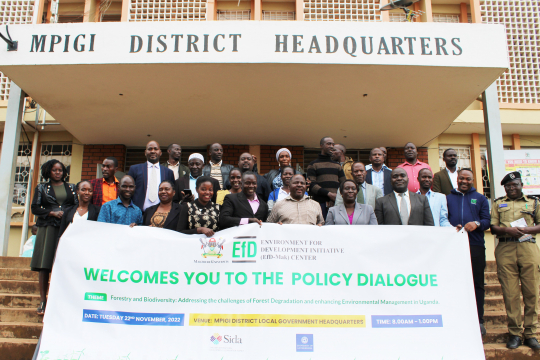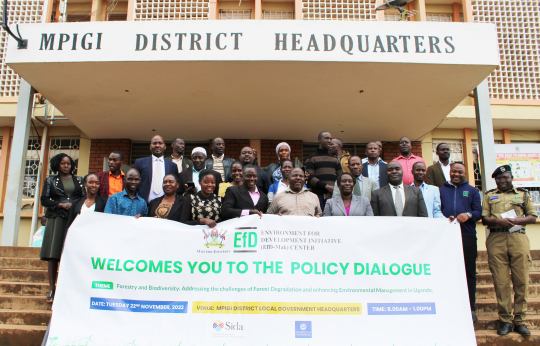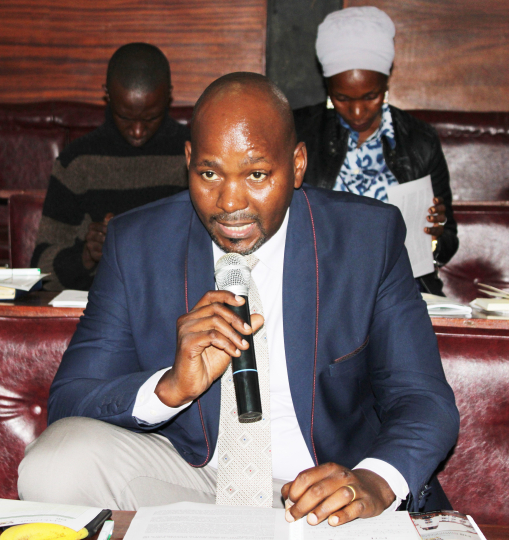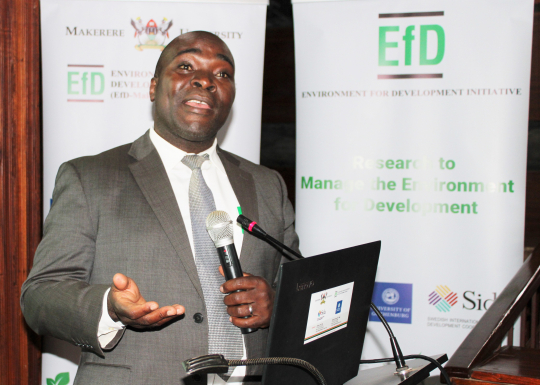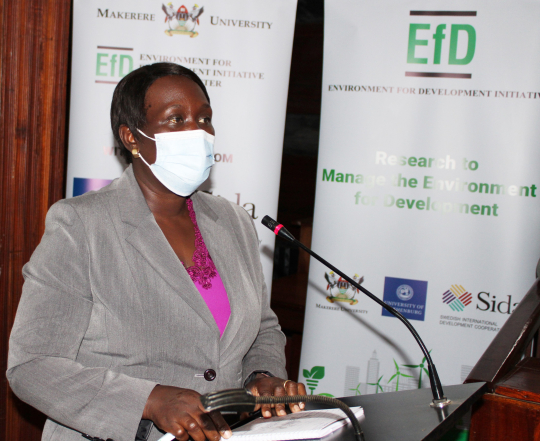The Mpigi District Local Government and stakeholders in the forestry sector want environmental economists from Makerere University to conduct research on the impacts of decentralizing the governance of national forests in Uganda.
According to the National Forestry Act of 2003, the management of all central forest reserves is the mandate of the National Forestry Authority (NFA) whereas that of local forest reserves is the direct responsibility of the district forest officer. All forestry activities are guided by the National Forestry Policy 2001.
Poor forest governance has been blamed for the depletion of the ecosystem in Uganda. The people of Mpigi contend that since the government mandated NFA to manage national forests, most of the forests have been depleted and they want national forests governance decentralized.
To achieve this the district's officials and stakeholders have asked the Makerere university to conduct research on the impact of decentralizing national forest governance to provide evidence for policy change. This call was made during the policy dialogue held at the district chambers organized by EfD Uganda at Makerere University on 22nd November 2022. The university team was led by Dr. John Sseruyange.
The meeting brought together representatives of the district political and technical arms, civil society organizations, the private sector, elders, opinion leaders, and farmer leaders under the theme, Forestry and Biodiversity: Addressing Challenges of Forest degradation and Enhancing Environmental Management in Uganda.
The participants discussed the key governance issues in the forestry sector, how communities can be strengthened to participate in forest recovery programs and what best forest restoration mechanisms should be adopted to revert the forest destruction trends in Uganda.
The District Natural Resources Officer Anthony Mwidyeki said that the management of forests in Mpigi has been so challenging and has on a number of occasions raised many issues involving NFA, the district, and the community living adjacent to the forests.
“The once thick forests in Mpigi district which had a collection of Muvule, Setaala, Musizi, and other indigenous tree species have and are still gradually being reduced to empty land or replaced with eucalyptus trees,” Anthony Mwidyeki noted.
“Indigenous species that had survived for ages are now being abruptly ruined. This tragedy has befallen all the natural forests in Mpigi, a district once blessed with a wide range of biodiversity. Most natural forests in Muduuma and Kiringente have completely gone,” he said.
Besides population pressure that has increased the demand for firewood, charcoal, and land for settlement, Mwidyeki alleged that illegal land titles have been created in these reserves, as well as the construction of roads, and industrialization.
Representing the Director EfD-Mak Centre, Research Fellow Dr. John Sseruyange underscored the importance of forests as major stores of atmospheric carbon contributing to the regulation of climate change and water quantity, mitigating the effects of high flows in wet periods and low flows in dry periods.
The Uganda forestry sector reforms (1998 – 2003) aimed at providing more efficient and effective forest administration, management, and utilization of Uganda’s forest resources through The Forestry Policy (2001), The National Forestry Plan (2002), the NFTPA (2003) and a new institutional framework for the management of forestry resources in the country.
These resulted in the birth of institutions such as the NFA, the UWA, the DFS, private forest owners, and community forests owners which distributed responsibilities between the central government, local government agencies, the private sector, NGOs, community-based organizations, and the local communities. The reforms aimed at promoting multi-stakeholder participation, transparency, integrity, and professionalism in the management of the forestry sector.
“Despite these good intentions, the forest estate in Uganda has continued to shrink from 4.9 million hectares in 1990 to currently 2.3 million hectares, a loss of over half of the forests in a span of 25 years. Over this period, 46% of protected woodlands- mostly those under NFA, were lost,” said John Sseruyange.
The Deputy Resident District Commissioner Maria Lubega described the dialogue as timely, and thanked the university for choosing Mpigi, pledging the district's commitment to supporting efforts geared towards restoring the environment.
Maria Lubega wants an evidence-based report on forest governance from Makerere university for presentation to the relevant government organs.
“Two weeks ago, the president sent someone from his office to come because he was interested in the environmental restoration, and we are working on this report. When the report about this is ready, share it with us and I shall share it directly with the president,” she said.
Participants speak out
“The forest sector is the least funded. NFA efforts are not coordinated with the district office. The District Natural resources officer should have been a member of NFA, there is a lot of political interference while implementing policies with orders from above,” The District Senior Entomologist Onyango Oluoch decried.
“When you look back, the forests were intact and management was proper. All regulations were being followed. With the new changes in the policy of 2001 when they brought in NFA, that is where we all lost it because there was confusion and no coordination because of the bad governance.
The first thing we need to do is to revert back to the old system. We need to have staff at every level. We need the forest guards and forest rangers but all these were reduced by two per district which is really overwhelming when it gets to the implementation of our forest management”. ” says District Forestry Officer Ssengendo Micheal said.
“... Forest guards are the ones who cut trees and sell to bakeries and schools. Eucalyptus is not good because they drain water at a high speed and, were introduced by industrialists who wanted to build industries. But we of enforcement have a problem. You go and see a person with a car carrying timber and there is no legal document showing. When you stop the car, you will hear the person referring you to talk to another person. Sometimes there is a collaboration with NFA and timber dealers connected from above. I suggest the powers should be brought back, and decentralize forest reserves so that districts own, oversee and manage the forests “ said the District Environmental Police Commandant.
But for teacher Emmanuel, charity begins at home and community. Sensitization from the community level will help children internalize the importance of forests.
“There is a need for mindset change of those mandated to protect the environment so that children learn from them. Privatization of forests should be discouraged to save forests,” he said.
Read more from the detailed report herewith attached.
By: Jane Anyango
Communication Officer.
